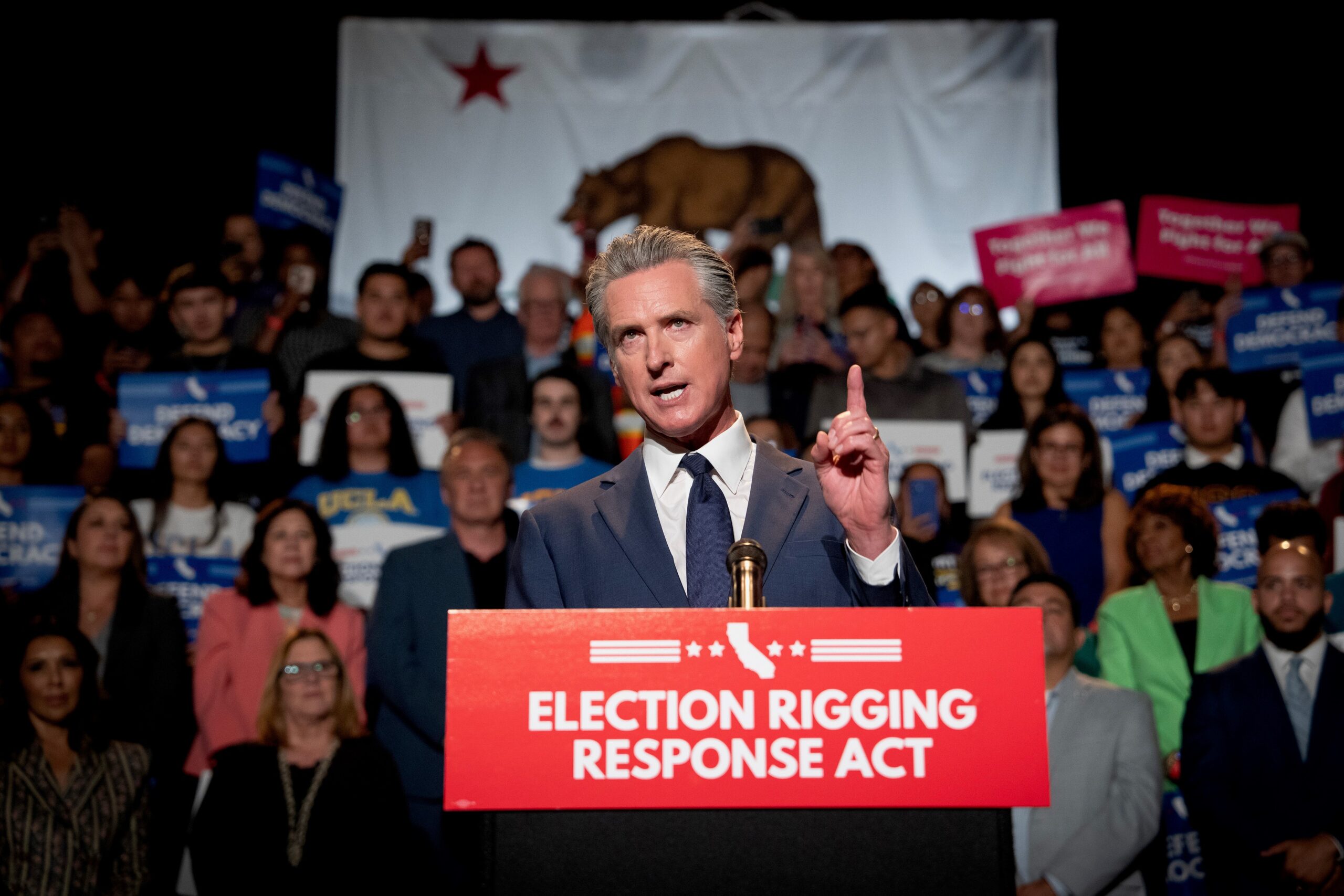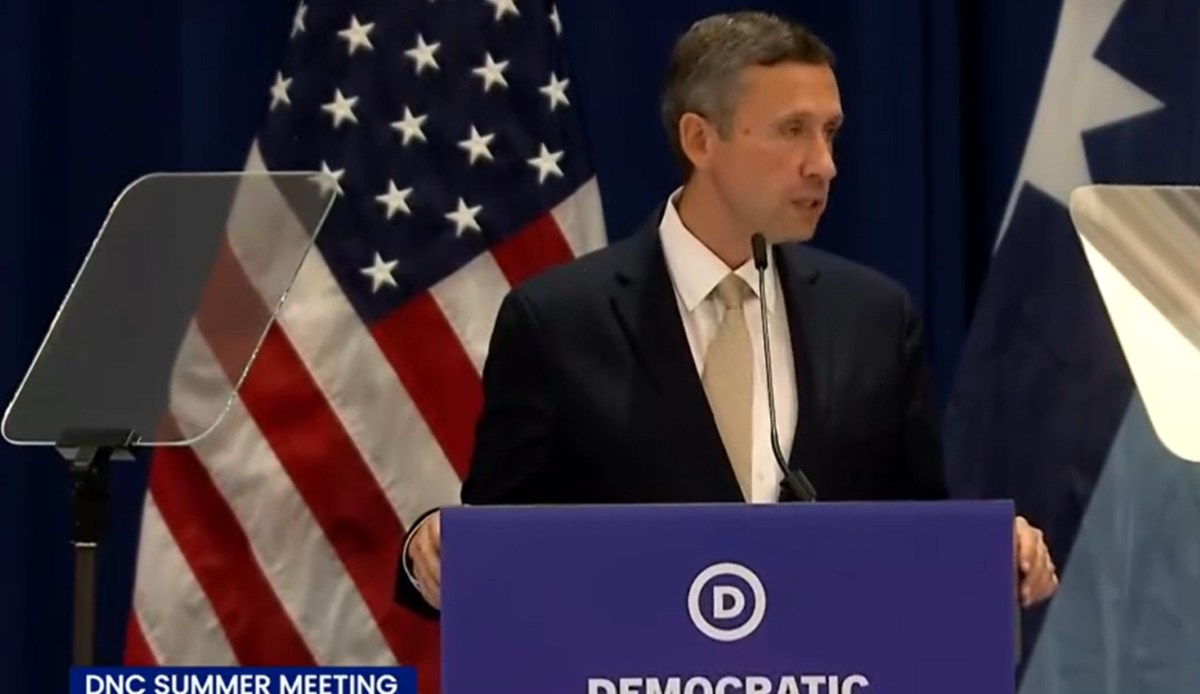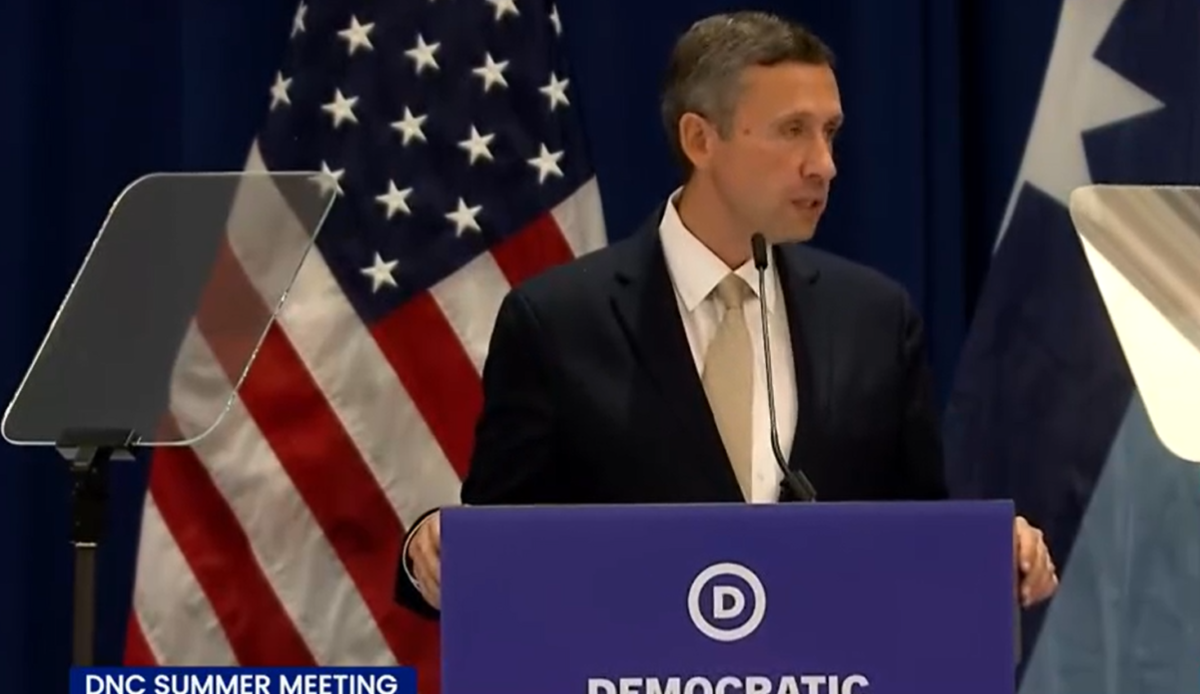California Governor Gavin Newsom has announced a special election for November to vote on Proposition 50, a measure that would transfer control of congressional redistricting from the independent Citizens Redistricting Commission back to the state legislature, where Democrats hold a supermajority. Newsom’s move is framed as a response to Texas Republicans’ recent redistricting efforts, which he claims are designed to benefit the GOP in the upcoming 2026 midterms.
Critics argue that Newsom’s initiative is a politically motivated power grab disguised as a defense of democracy. Chuck DeVore, chief national initiatives officer at the Texas Public Policy Foundation, stated, “This is performative politics in pursuit of the White House, cloaked as a defense of democracy.”
The proposed redistricting in Texas follows a series of federal court rulings that have reaffirmed state legislatures’ authority to draw district lines. Notably, the Supreme Court’s 2019 decision in Rucho v. Common Cause ruled that partisan gerrymandering is a political question beyond the reach of federal courts, limiting judicial intervention in such matters.
Texas Governor Greg Abbott’s administration is moving forward with a congressional map that could potentially increase Republican representation from 25 to 30 seats, while also creating two majority-black districts and an additional Hispanic-majority district. This redistricting effort has been characterized by Newsom as an example of Republicans “rigging” elections.
In a recent poll conducted by Politico, Newsom leads former Vice President Kamala Harris among California’s registered Democratic voters and Democratic-leaning independents, with 25% supporting him compared to 19% for Harris. Newsom’s aggressive social media campaign has included statements about “fighting fire with fire” against Republican actions in Texas.
However, public support for Proposition 50 appears weak. Polls indicate that voters are largely opposed to transferring redistricting power back to the state legislature, with one survey showing a 2-to-1 margin against the proposal.
Former California Governor Arnold Schwarzenegger has publicly opposed Newsom’s initiative, defending the independent redistricting commission established by voters in 2010. Schwarzenegger’s involvement could complicate Newsom’s efforts, as he is expected to help raise approximately $100 million to maintain the current redistricting process.
As the November election approaches, Newsom’s strategy may serve dual purposes: addressing the political landscape in California while also bolstering his national profile ahead of a potential presidential run. Newsom, who is term-limited next year, faces significant challenges, including a struggling state economy and budget issues.
The outcome of the special election will not only impact California’s congressional map but could also set a precedent for how states approach redistricting in the future. Newsom’s proposal has ignited a debate about the balance of power in state politics and the role of independent commissions in the redistricting process.
READ ICE Arrests Convicted Criminals in Nationwide Operation



